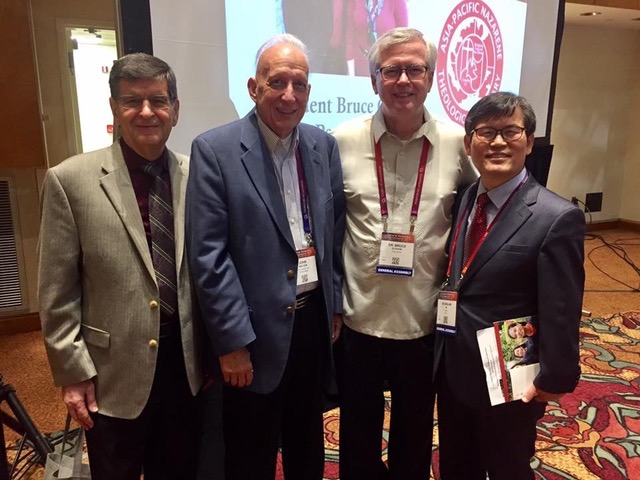In the December blog, “Creating Space and Making Room,” a reader, after commenting on the article, asked me the difference between hospitality, as I was defining the term in the article, and compassion. Thoughtful question.
I have not worked out a clear delineation of these two character qualities of the heart. Perhaps they are two sides of the same coin. However, I did reflect on the question and also review articles I have written on the subject of compassion to help me discern the difference. I need your help!
Below is an article on the subject,”Compassion,” that is embedded in the ministerial course of study book I wrote, “Leading the People of God: Servant Leadership for a Servant Community.” Interestingly, in the fifth section of the book, I talk about “Character Qualities of the Heart” and discuss the qualities of trust, compassion hospitality, gratefulness, tenacity and endurance. Click here to review the entire faculty guide for the book, especially Lesson 14. Click here to if you would like to review the student guide for the book, especially lessons 13 and 14. Both faculty and student guides are available in Spanish. Click here for the faculty guide in Spanish. Click here to review the student guide in Spanish.
I welcome your comments on the article below and/or on the sections from “Leading the People of God.”
COMPASSION
“Helping others to see what they have not seen in themselves.”
Compassion is nearly synonymous with caring in the context of qualities of the servant leader. Our compassion, or care, for others can be intimate or distant. What do we mean by “care”? The word “care” finds its root in the Celtic term “kara,” which means lament. The basic meaning of care is “to grieve, to experience sorrow, to cry out with.” I am struck by the background of the word “care” because we tend to look at caring of the strong toward the weak, of the powerful toward the powerless, of the “haves” toward the “have-nots.”
I am coming to understand that biblical compassion is not a skill which we acquire. Rather, it is a quality of the human heart which must be revealed.
The late Henri Nouwen often stated that you cannot get a Ph.D. in caring. Nouwen helped me to realize that when we see the other person and discover in that person gentleness, tenderness, and other beautiful gifts, which he or she is not able to see, then our compassionate heart is revealed!
What a profound thought! Our compassionate heart is revealed as we enable others to see what they have not, nor cannot, see in themselves! Again, we see the reciprocal, two-way part of servant leadership. As Christian servant leaders, we become conduits of God’s caring or compassion. We are talking about caring relationships with people, the people we lead as servant leaders. The proof of our leadership is found in enabling others to see what they have not seen.
To be compassionate is not, first of all, something we do for others, but rather it is discovering with others their divinely given resources and inner qualities. It is a way of being present with others and standing with them in their times of need. I’m slowly coming to see that God wants us to be with others…not to prove that we are valuable to them.
When we honestly ask ourselves which persons in our lives mean the most to us, we often find that it is those who, instead of giving much advice, solutions, or cures, have chosen rather to share our pain and touch our wounds with a gentle and tender hand.
The friend who can be silent with us in a moment of despair or confusion— who can stay with us in an hour of grief and bereavement, who can tolerate not knowing, not curing, not healing, and not doing— that is the friend who cares.
You may remember moments, as I do, in which we were called to be with a friend who had lost a brother, a sister, a wife or husband, child or parent. What can we say, do, or propose at such a moment? There is a strong inclination to say things such as, “Don’t cry; the one you loved is in the hands of God.” or “Don’t be sad because there are so many good people and so many good things left worth living for.” “Caring deeply” in these moments demands that…we listen intently, we speak directly and caringly, we ask questions for the other person’s sake and not for our own, we are truly present, even in the quietness, and we pray honestly, openly, and confidently!
Nouwen introduced me to the phenomenal concept of voluntary displacement in his book entitled Compassion and in other books and numerous articles on the subject. Voluntary displacement means that for the sake of others, we willingly go to places we’d rather not go. We move out of our comfort zones voluntarily and “displace” ourselves outside the familiar to us. Why? A need exists; a response from within is required; an inward call from God is felt; we go, because of who we are. Voluntary displacement can take us to the inner city or around the world. This calling can be for a brief time or for a lifetime.
Nouwen’s life illustrates how caring deeply for others often interrupts our routines of life. It really was not difficult for Nouwen to leave his teaching positions at Notre Dame, Harvard and Yale divinity schools to accept an invitation to spend the final ten years of his life living and working as priest to the L’Arche Community for the severely mentally handicapped in Toronto. His specific daily responsibility was to care for Adam. It took Nouwen two hours each day to prepare Adam for breakfast. Yet Nouwen wrote on several occasions, “I learned far more from Adam than he ever learned from me.” Again, I am coming to see that God wants us to be with others…not to prove that we are valuable to them.
Care deeply. Be deeply compassionate. Our care for others can be intimate or distant.





